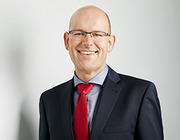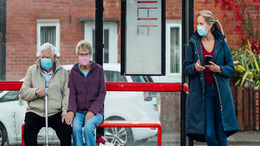The impact of the pandemic on social cohesion is clear to see. In 2019, more than 90 percent of respondents said they had friends whose help they could count on at any time. Currently, only 83 percent say this. Now almost 25 percent of respondents also believe they can no longer rely on anyone. Before the pandemic, just 9 percent said this. Trust in social institutions has also weakened: The proportion of those who distrust the police and the courts has increased by around 10 percentage points in each case.
These are the results of our current study "Social Cohesion in Baden-Württemberg 2022". For this study, we compared the results of previous surveys from 2017 and 2019 with current figures from the turn of 2021/2022. This showed that there had been a significant decline in eight of the nine dimensions surveyed and in all regions of the state between 2019 and 2021/2022. Overall, our index for cohesion, which can take on values from 0 to 100, has fallen significantly from 64 to 54 points over the past two years.
![[Translate to English:] Menschenmenge](/fileadmin/files/_processed_/8/7/csm_AdobeStock_78773523_KONZERN_ST-DZ_Original_98218_0ece45bea9.jpeg)

![[Translate to English:] Drei Menschen mit Maske blicken in eine Richtung](/fileadmin/files/_processed_/5/5/csm_1621133995AdobeStock_361885051_KONZERN_ST-LW_a528f95131.jpg)



